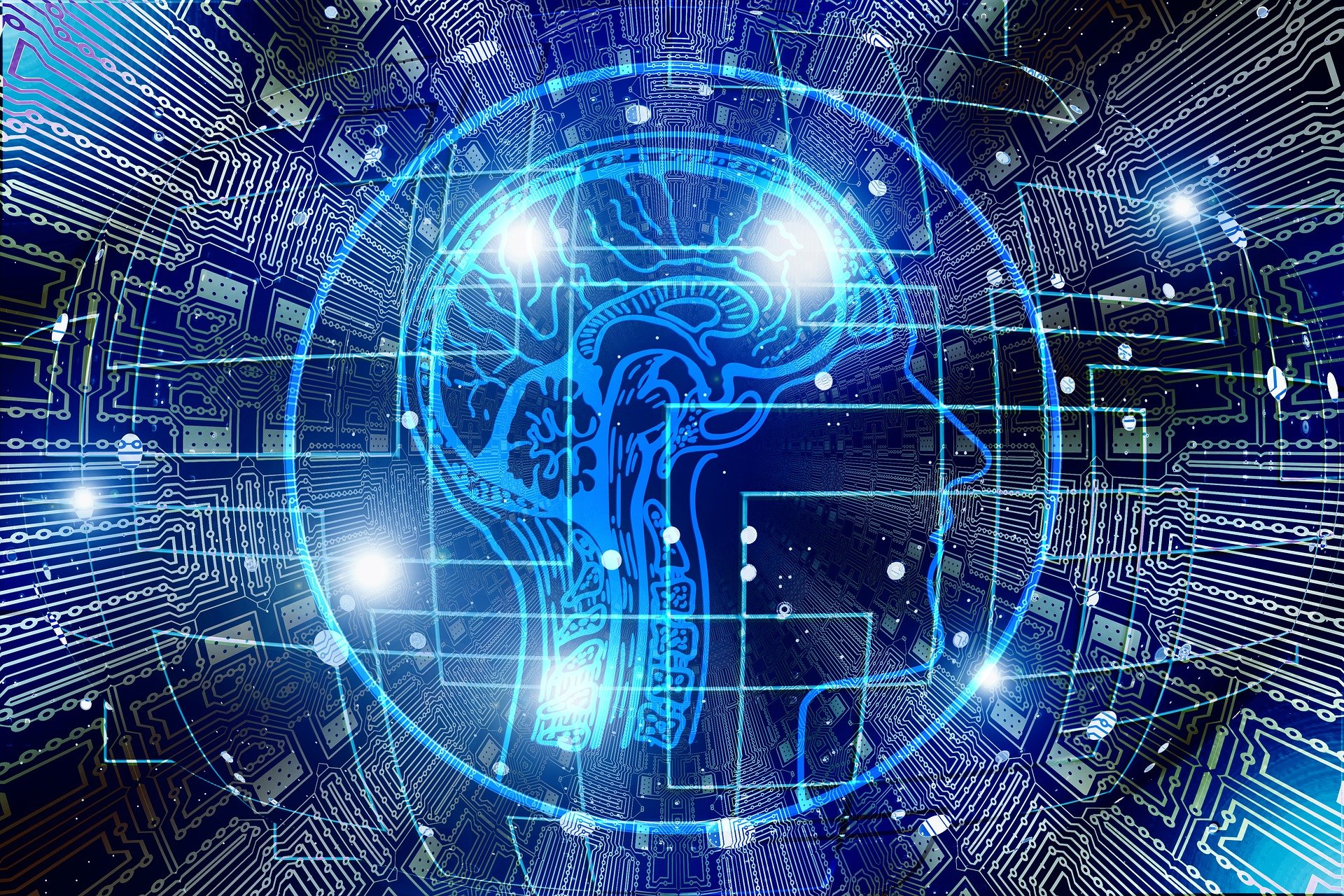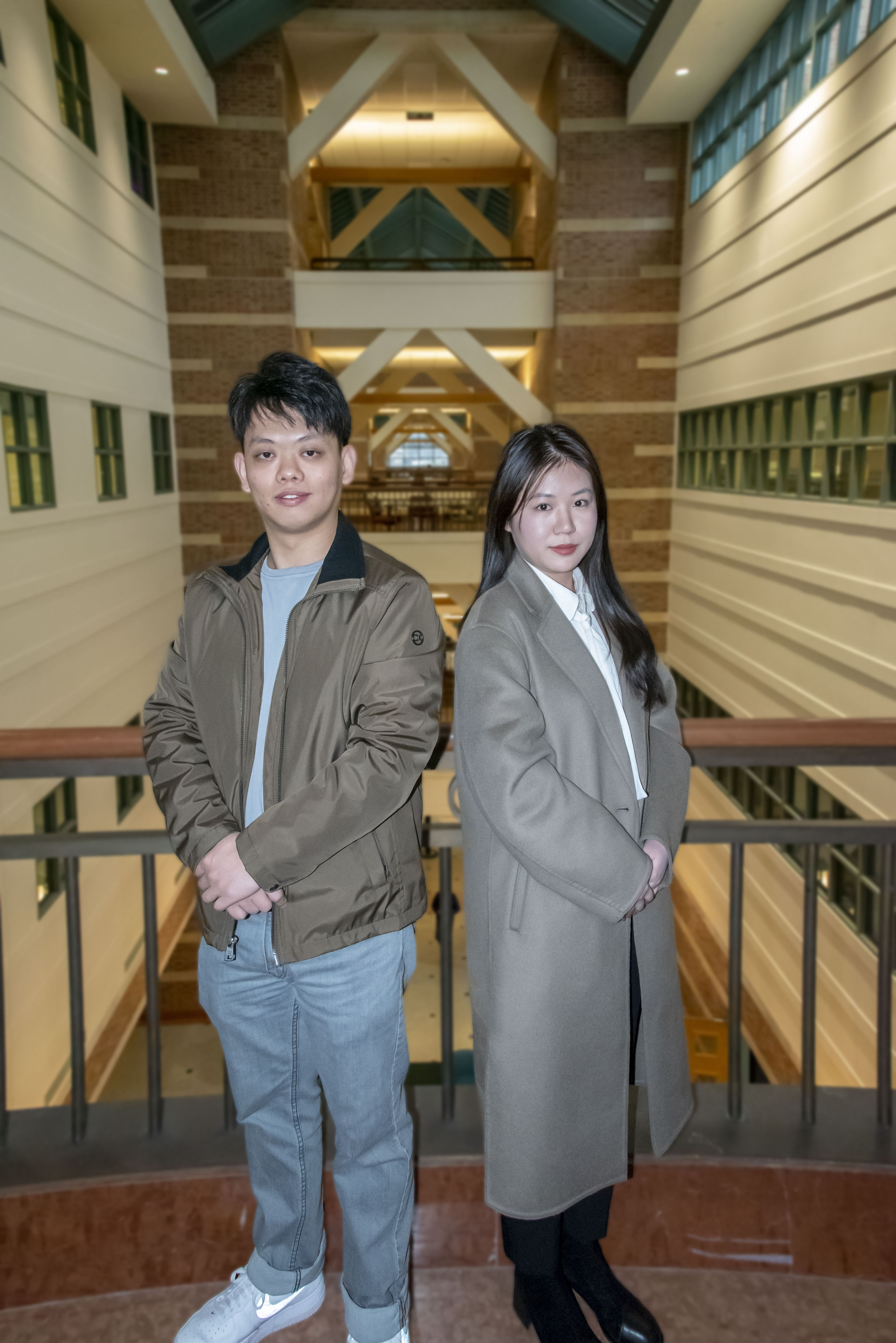Article

In a technology landscape where machines drive cars, computers curate the perfect Monday morning playlist, and bots can trounce many a seasoned bridge player, artificial intelligence may seem superhuman. But rest easy: our humble, thoroughly human brains remain the gold standard.
“Machine intelligence has yet to even approach human flexibility and robustness,” said Diane Beck, a psychology professor at the University of Illinois Urbana-Champaign. “Given that the current revolution in machine learning has its roots in emulating biological intelligence, one fruitful direction is to look for further inspiration from the cognitive and biological sciences.”
Returning to the bio-instruction manual for intelligence is a weighty task that's best tackled with a team. More specifically, an interdisciplinary team. That’s why Beck and her Department of Psychology colleague Professor Frances Wang developed the Bio-informed AI Research Competition, which unites student researchers in the cognitive, biological, and behavioral sciences with those pursuing engineering degrees to ultimately advance the field of AI.
The competition is sponsored by the Biologically Informed Artificial Intelligence Working Group at the Beckman Institute for Advanced Science and Technology, where Beck and Wang conduct their research.
“Reaching across disciplines, especially at an institution like the University of Illinois, is a necessary step toward advancing AI research in a meaningful way. This competition creates an environment in which students, who are already so abundantly creative and skilled in their own fields, can be motivated to ask bold and novel research questions and find solutions that otherwise may never cross their minds,” Wang said.
Collaboration in action: meet the winners
 Yinuo Peng, a master's student in the Department of Psychology, and Zhen Zhu, a Ph.D. student in the Department of Computer Science, won the inaugural Bio-informed AI Research Competition in 2022.Yinuo Peng, a master’s student in the Department of Psychology, and Zhen Zhu, a Ph.D. student in the Department of Computer Science, won the inaugural BIAI Research Competition in 2022. Though they shared the award, they began their collaboration
with nothing in common but a passion for AI.
Yinuo Peng, a master's student in the Department of Psychology, and Zhen Zhu, a Ph.D. student in the Department of Computer Science, won the inaugural Bio-informed AI Research Competition in 2022.Yinuo Peng, a master’s student in the Department of Psychology, and Zhen Zhu, a Ph.D. student in the Department of Computer Science, won the inaugural BIAI Research Competition in 2022. Though they shared the award, they began their collaboration
with nothing in common but a passion for AI.
Well-versed in the brain’s vast neural network — the system of rivers, roads, and synaptic junctions that nerve cells use to communicate — Peng came on to the scene with scant experience in machine learning. Conversely, Zhu preferred studying the algorithms inspired by the brain’s biological infrastructure — the same algorithms that help machines achieve artificial intelligence, learn how to drive, and master digital card tricks.
Peng and Zhu pooled their complementary interests to investigate a phenomenon that afflicts even the most nuanced neural networks: catastrophic forgetting, the tendency of AI systems to jettison previously learned information in the face of shiny new data.
Inexplicably, catastrophic forgetting is unique to artificial intelligence. By contrast, humans can learn continually, gathering and storing information on a rolling basis over the course of a lifetime. This is why we can still retrieve the alphabet song, recall the days of the week, and remember which animal goes “moo” even after years of learning new and more advanced (but no less important) information.
Despite being born, raised, and modeled after the human brain, why are AI systems prone to catastrophic forgetting? To investigate, Peng and Zhu contrasted the learning behaviors of a computer system with those of its carbon-based common ancestor, hoping to pinpoint the precise conditions of divergence.
“Since the human learning process is the point of origin for all AI, that was our natural starting point,” Peng said. “We asked ourselves: Under identical learning conditions, why would an artificial neural network operate differently from a human brain? When and where do we see that change happening?”
To observe the learning process in action, Peng and Zhu presented human participants and deep neural network models with 50 images of unfamiliar objects. The images were split into five categories, and the images within each category were visually similar to one another. By the end of the experiment, participants were expected to learn how to correctly categorize each image.
“It was extremely exciting to have Yinuo’s and Professor Wang’s perspectives to learn from and work with,” said Zhu, who had not conducted an experiment with human subjects prior to this work.
Peng and Zhu used three different learning styles in their study: full-set, where subjects were shown all the images at once; mixed-batch, where subjects were shown 10 randomly selected images at a time; and by-category, where subjects were shown all the images from one category before advancing to the next. While human participants could recognize and classify each set of images accurately regardless of how they learned them, the AI system struggled to grasp the by-category learning style, catastrophically forgetting the previously learned categories each time it was shown a new one.
Peng and Zhu presented their winning research at an award ceremony in December; a recording of their presentation is available online. Though the competition has ended, they will continue collaborating to explore the strategies that humans use to complete by-category learning, ideally applying these to AI systems down the road.
“One hypothesis is that people learn cyclically, meshing known information with new information, so it sticks,” Peng said.
She recommends a similar approach to future BIAI competitors: meshing known information from a familiar field with new knowledge from a complementary discipline. She acknowledges that this isn’t always easy.
“I would like to encourage future entrants to be brave whenever gathering research ideas or conducting experiments. I was a little worried when we initiated the project. If possible, I would tell the old me just to try and see what happens. There are many unknown possibilities in these areas waiting to be explored,” Peng said.
Zhu offers similar words of wisdom:
“This contest may sound intimidating in the first place but actually it is not. Collaboration in both psychology and AI would be beneficial to your future career. So just have a try!”
Interested in submitting a proposal to the Bio-informed AI Research Competition? Click here to view the timeline and eligibility requirements on the contest webpage.
Beckman Institute for Advanced Science and Technology